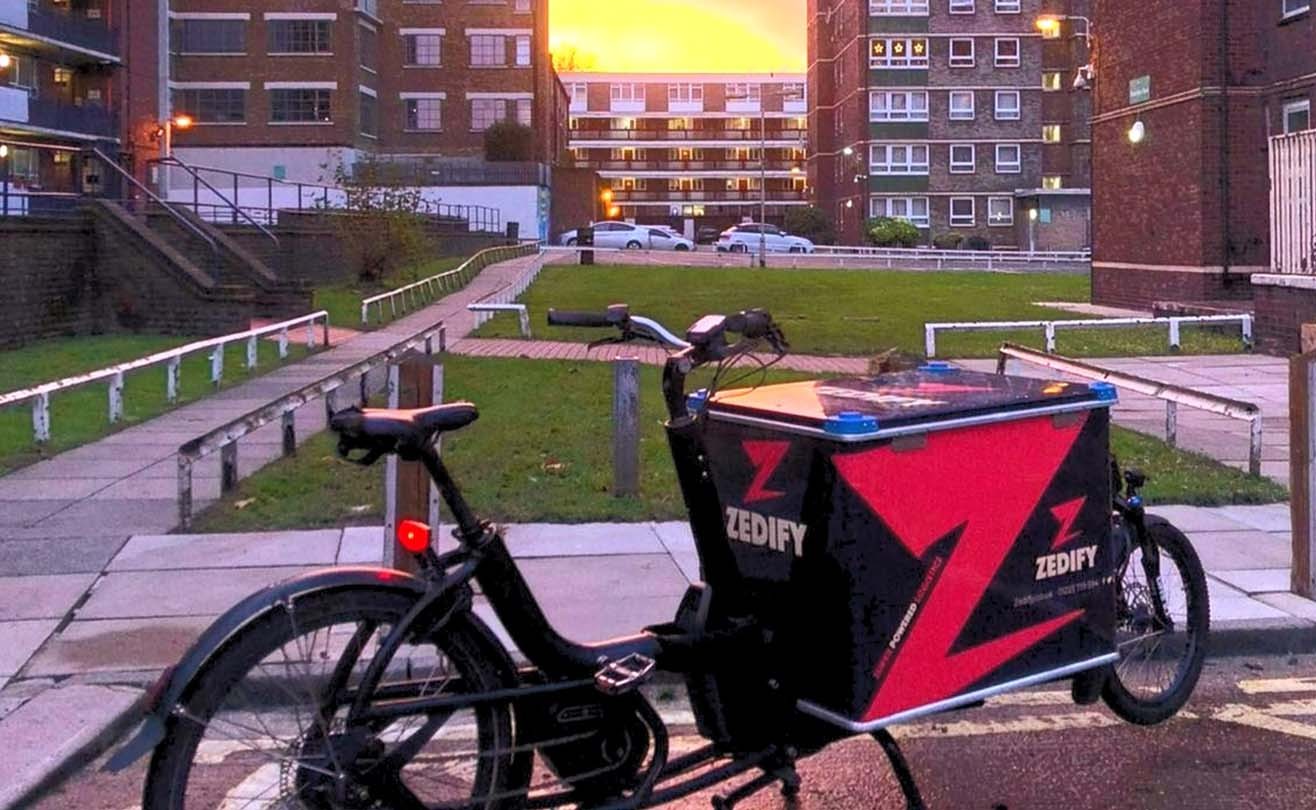
It’sTransportDayatCOP26andtheseareour3BigAsks
 November 10th, 2021
November 10th, 2021 Harriet Hird
Harriet Hird 6 minute read
6 minute readFor the last week and a half all eyes have been on COP26 in Glasgow. How are the commitments shaping up? How might the pledges pan out? Can we trust them? Are they anywhere near enough to keep us safe? Amidst the melee of national net zero strategy launches, budget announcements that subsidise car use and flights, a flood of corporate net zero pledges and non-stop sustainability claims, it can be hard to know where we stand.
Today the focus is turning to transport. At Zedify, we know the transport sector must play a central role in reducing emissions. The only UK sector yet to make a cut, there’s a massive opportunity for change by transforming the way people and goods move around.
With freight from HGVs and vans taking up a sizable 32% chunk of transport’s carbon footprint, it’s pretty terrifying that we’re still seeing EV tunnel-vision, carbon offsetting of deliveries as a first step, and endless policy discussions that completely ignore the role of active travel and cargo bikes both for both freight and mobility applications. I mean, thanks, Boris, for namechecking cargo bikes in the UK’s Net Zero Stategy, but we need far more concrete and ambitious plans. And we need the acknowledgement that swapping out conventional vehicles for EVs across the board is not going to get us where we need to be to reach our 2030 goals.
ith this in mind, on Transport Day at COP, we have 3 big asks. These are about seeing big business and policy makers looking at how real, ambitious cuts could be made by the freight sector. That’s particularly pertinent in cities, where sustainable logistics is not just about cutting carbon but improving air quality, road safety, employment practices, increasing active travel and generating better health outcomes.
1/ Stop offsetting delivery emissions as a first step
At the checkout, increasingly, online shoppers are offered ‘climate neutral’ or ‘zero-carbon’ delivery. Yet in most cases the delivery services behind the scenes have not fundamentally changed their operations, fleets, or premises. These claims are often based on the purchasing of carbon offsets to mitigate, or offset, their emissions.
Road transport in the UK is yet to achieve any emissions cuts, so offsetting deliveries and calling them green is simply not enough and we’d argue that calling them green is misleading and wrong. The delivery isn’t green; it has real local and global impacts from climate-heating emissions, local air pollution, and urban noise and congestion.
To put ourselves on a viable pathway to reach net zero we can’t offset everything. There’s not nearly enough capacity in the land or via deployable technological fixes to absorb all the CO2 we’re emitting – so we need real emissions cuts from each sector.
There are now some high quality offsetting schemes available that combine tree planting with local infrastructure investment such as renewable energy for local communities that helps prevent the continuation of tree felling for fuel. These schemes are doing amazing, highly valuable work, but we’d argue they should be considered separately when a firm measures its carbon impact. Not as a way to bypass or put off making real changes to sustainable freight transport.
2/ EVs are not going to get us all the way to net zero. Champion last mile logistics using cargo bikes more loudly!
Cargo bikes are now name-checked in the UK government’s Net Zero Strategy and they are discussed in the Decarbonising Transport plan released in June. But, as noted by huge numbers of frustrated campaigners and activists at COP- where are the bikes? We know that EVs alone won’t fix the carbon impact of personal mobility or freight and that cycling and cycle logistics must play a key role.
Compared with conventional diesel vans, EVs are only around 50% lower emissions, they still create problematic tyre dust emissions and take up just the same footprint on the road, so there are no gains in terms of congestion. They’re also no friend to the liveable city model, where roads need to become inclusive spaces which promote cycling and walking. All these factors are critical when it comes to urban logistics, where it’s vital there’s remoding to lighter, nippier, lower impact vehicles designed just for the specific challenges of town and city centres.
Cargo bikes are getting recognition as a practical, proven, scalable urban last mile technology- demonstrated by big logistics firms beginning to transition to LEVs and the Motor Transport Awards crowning cargo bike logistics as the winner of their 2021 Urban Operator of the Year category.
With up to 33% of all the 5 billion parcels delivered each year in the UK each year that could be switched to cargo bike, we’d like to see a comprehensive calculation of the potential contribution cargo bike logistics could make to net zero transport. We’d like to see speedier transition.
3/ Support local authorities to create strategic, aligned freight plans that allocate space for local micro hubs.
Local authorities in UK city centres have been caught off guard by the scale and pace of ecommerce growth and the impact that’s had on van traffic, particularly since Covid. We think there needs to be ambitious and strategic freight plans created for each city and town as soon as possible, plans which are fully integrated with public transport and mobility. If we’re going to achieve the transition to 33% freight delivered by light electric vehicles like cargo bikes, there needs to be far larger scale investment, particularly on microhubs. You can’t remode and consolidate without the space to do that, right at the edge of the city centre. At Zedify, we think this should be on a par with the investment and space allocation put towards park and ride schemes.
Many good examples exist of space allocation in cities adapting to meet new needs; from underused car parks converted to freight consolidation centres and new ideas around retailers adapting their city centre stores and loading bays to consolidate deliveries. Bristol City Council have supported Zedify Bristol in finding a home for a hyper local freight consolidation hub, and Waltham Forest Council who jointly created ZED with Zedify to provide a viable means for businesses to keep their goods moving as road use restrictions were put in place to encourage more active travel. Better Bankside is launching a first-of-its-kind local green logistics centre to help their member businesses reduce freight emissions from some of the most commonly delivered products regularly shipped into the area.
Zedify tackles emissions from urban logistics head on. By remoding deliveries onto electric cargo bikes and consolidating deliveries going to the same areas, we drastically reduce the emissions of first and last mile logistics, typically by well over 90% for CO2 and 100% for localised air pollutants. In doing so, we also support the transition of our cities away from vehicle-centric planning models and towards liveable and resilient spaces that are aligned with a net-zero future.
For more on clean, joined up urban freight plans, talk to the Zedify team today.




